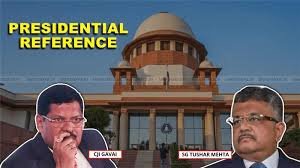
Governor's power to block bills: Central government's arguments in the Supreme Court
Mumbai, September 11, 2025 - The Supreme Court is currently hearing a Presidential Reference case regarding the powers of the Governor and the process of assent to bills. During the hearing, the Central government clarified its position and said that the Governor has the power to block unconstitutional bills and send them back for reconsideration. The Center, opposing the Punjab government's argument, claimed that the claim that the Governor only has the power to assent to bills is wrong.
Solicitor General Tushar Mehta, arguing on behalf of the Central government, said that while interpreting the constitutional provisions of Articles 200 and 211, the court should consider the serious and dangerous situations that may arise in the future. He further said that when the Governor sends a bill back for reconsideration, he has the power to make a formal announcement of refusal of assent. According to the first provision of Article 200, the message accompanying the bill sent back by the Governor determines the scope of reconsideration.
Tension between Governor and State Government
In many states across the country, there have been frequent reports of tension between the Governor and the State Government. In states like West Bengal, Tamil Nadu, Karnataka, Punjab and Delhi, there have been complaints that the Governor takes decisions at his own discretion. Against this backdrop, President Draupadi Murmu had sent a reference to the Supreme Court under Article 143 in May 2025 with 14 questions. It sought clarity on whether the Governor and the President can impose a fixed time limit on bills through court orders.
A five-judge bench headed by Chief Justice B. R. Gavai has started hearing the matter in the Supreme Court. It includes Justices Suryakant, Vikram Nath, P. S. Narasimha and A. S. Chandurkar. During the hearing, the Central Government argued that under Article 200, the Governor has three options: to approve, withhold or send the bills for the President's consideration. However, the Centre is of the opinion that it is not appropriate to impose a fixed time limit on this process.
Tamil Nadu case and time limit
In this context, the Tamil Nadu Governor's case deserves special mention. In April 2025, a two-judge bench of the Supreme Court had fixed a time limit for the Governor to take a decision on the bills. It stated that if the Governor sends the bill to the President, the President will have to take a decision within three months. Challenging this decision, the Centre argued that such a time limit limits the constitutional powers of the Governor and the President.
Senior advocate Arvind Datar, arguing for the Punjab government, said that Article 200 uses the term "as soon as possible", which indicates the need for an immediate decision. He further said that the Governor does not have the power to stay the bill indefinitely. "If the Governor is allowed to stay the bill indefinitely, it will create a constitutional conflict," Datar explained.
Arguments of state governments
States like West Bengal, Tamil Nadu, Telangana and Himachal Pradesh have opposed the governor's unfettered powers. They argue that the legislatures have exclusive power to make laws and the role of the governor is merely ceremonial. Senior advocate Kapil Sibal, arguing for West Bengal, said that the governor does not have the power to examine the constitutionality of bills. "The task of examining the constitutionality of a bill is for the courts, not the governor," Sibal asserted.
Sibal further said that the governor does not have the power to take any independent decision under Article 200. "The governor is the constitutional head and he has to act on the advice of the cabinet," he noted. He cited the judgment of a seven-judge bench in the Shamsher Singh case, which made it clear that the governor and the president have to act on the advice of the cabinet.
Centre's opposition
The Centre argued that the Governor has the power to take independent decisions under Article 200 and is not bound by the advice of the Cabinet. Solicitor General Tushar Mehta said that if the Governor's job is only to give assent, his role will be reduced to that of a "postman". He added that the Governor has the power to block a bill, especially when he feels it is unconstitutional.
Mehta argued that the term "as soon as possible" in Article 200 applies only to sending back a bill, not to granting assent or blocking it. He added that if the court fixes a time limit, it will amount to interference with constitutional provisions.
Mumbai, September 11, 2025 - The Supreme Court is currently hearing a Presidential Reference case regarding the powers of the Governor and the process of assent to bills. During the hearing, the Central government clarified its position and said that the Governor has the power to block unconstitutional bills and send them back for reconsideration. The Center, opposing the Punjab government's argument, claimed that the claim that the Governor only has the power to assent to bills is wrong.
Solicitor General Tushar Mehta, arguing on behalf of the Central government, said that while interpreting the constitutional provisions of Articles 200 and 211, the court should consider the serious and dangerous situations that may arise in the future. He further said that when the Governor sends a bill back for reconsideration, he has the power to make a formal announcement of refusal of assent. According to the first provision of Article 200, the message accompanying the bill sent back by the Governor determines the scope of reconsideration.
Tension between Governor and State Government
In many states across the country, there have been frequent reports of tension between the Governor and the State Government. In states like West Bengal, Tamil Nadu, Karnataka, Punjab and Delhi, there have been complaints that the Governor takes decisions at his own discretion. Against this backdrop, President Draupadi Murmu had sent a reference to the Supreme Court under Article 143 in May 2025 with 14 questions. It sought clarity on whether the Governor and the President can impose a fixed time limit on bills through court orders.
A five-judge bench headed by Chief Justice B. R. Gavai has started hearing the matter in the Supreme Court. It includes Justices Suryakant, Vikram Nath, P. S. Narasimha and A. S. Chandurkar. During the hearing, the Central Government argued that under Article 200, the Governor has three options: to approve, withhold or send the bills for the President's consideration. However, the Centre is of the opinion that it is not appropriate to impose a fixed time limit on this process.
Tamil Nadu case and time limit
In this context, the Tamil Nadu Governor's case deserves special mention. In April 2025, a two-judge bench of the Supreme Court had fixed a time limit for the Governor to take a decision on the bills. It stated that if the Governor sends the bill to the President, the President will have to take a decision within three months. Challenging this decision, the Centre argued that such a time limit limits the constitutional powers of the Governor and the President.
Senior advocate Arvind Datar, arguing for the Punjab government, said that Article 200 uses the term "as soon as possible", which indicates the need for an immediate decision. He further said that the Governor does not have the power to stay the bill indefinitely. "If the Governor is allowed to stay the bill indefinitely, it will create a constitutional conflict," Datar explained.
Arguments of state governments
States like West Bengal, Tamil Nadu, Telangana and Himachal Pradesh have opposed the governor's unfettered powers. They argue that the legislatures have exclusive power to make laws and the role of the governor is merely ceremonial. Senior advocate Kapil Sibal, arguing for West Bengal, said that the governor does not have the power to examine the constitutionality of bills. "The task of examining the constitutionality of a bill is for the courts, not the governor," Sibal asserted.
Sibal further said that the governor does not have the power to take any independent decision under Article 200. "The governor is the constitutional head and he has to act on the advice of the cabinet," he noted. He cited the judgment of a seven-judge bench in the Shamsher Singh case, which made it clear that the governor and the president have to act on the advice of the cabinet.
Centre's opposition
The Centre argued that the Governor has the power to take independent decisions under Article 200 and is not bound by the advice of the Cabinet. Solicitor General Tushar Mehta said that if the Governor's job is only to give assent, his role will be reduced to that of a "postman". He added that the Governor has the power to block a bill, especially when he feels it is unconstitutional.
Mehta argued that the term "as soon as possible" in Article 200 applies only to sending back a bill, not to granting assent or blocking it. He added that if the court fixes a time limit, it will amount to interference with constitutional provisions.
Solicitor General Tushar Mehta, arguing on behalf of the Central government, said that while interpreting the constitutional provisions of Articles 200 and 211, the court should consider the serious and dangerous situations that may arise in the future. He further said that when the Governor sends a bill back for reconsideration, he has the power to make a formal announcement of refusal of assent. According to the first provision of Article 200, the message accompanying the bill sent back by the Governor determines the scope of reconsideration.
Tension between Governor and State Government
In many states across the country, there have been frequent reports of tension between the Governor and the State Government. In states like West Bengal, Tamil Nadu, Karnataka, Punjab and Delhi, there have been complaints that the Governor takes decisions at his own discretion. Against this backdrop, President Draupadi Murmu had sent a reference to the Supreme Court under Article 143 in May 2025 with 14 questions. It sought clarity on whether the Governor and the President can impose a fixed time limit on bills through court orders.
A five-judge bench headed by Chief Justice B. R. Gavai has started hearing the matter in the Supreme Court. It includes Justices Suryakant, Vikram Nath, P. S. Narasimha and A. S. Chandurkar. During the hearing, the Central Government argued that under Article 200, the Governor has three options: to approve, withhold or send the bills for the President's consideration. However, the Centre is of the opinion that it is not appropriate to impose a fixed time limit on this process.
Tamil Nadu case and time limit
In this context, the Tamil Nadu Governor's case deserves special mention. In April 2025, a two-judge bench of the Supreme Court had fixed a time limit for the Governor to take a decision on the bills. It stated that if the Governor sends the bill to the President, the President will have to take a decision within three months. Challenging this decision, the Centre argued that such a time limit limits the constitutional powers of the Governor and the President.
Senior advocate Arvind Datar, arguing for the Punjab government, said that Article 200 uses the term "as soon as possible", which indicates the need for an immediate decision. He further said that the Governor does not have the power to stay the bill indefinitely. "If the Governor is allowed to stay the bill indefinitely, it will create a constitutional conflict," Datar explained.
Arguments of state governments
States like West Bengal, Tamil Nadu, Telangana and Himachal Pradesh have opposed the governor's unfettered powers. They argue that the legislatures have exclusive power to make laws and the role of the governor is merely ceremonial. Senior advocate Kapil Sibal, arguing for West Bengal, said that the governor does not have the power to examine the constitutionality of bills. "The task of examining the constitutionality of a bill is for the courts, not the governor," Sibal asserted.
Sibal further said that the governor does not have the power to take any independent decision under Article 200. "The governor is the constitutional head and he has to act on the advice of the cabinet," he noted. He cited the judgment of a seven-judge bench in the Shamsher Singh case, which made it clear that the governor and the president have to act on the advice of the cabinet.
Centre's opposition
The Centre argued that the Governor has the power to take independent decisions under Article 200 and is not bound by the advice of the Cabinet. Solicitor General Tushar Mehta said that if the Governor's job is only to give assent, his role will be reduced to that of a "postman". He added that the Governor has the power to block a bill, especially when he feels it is unconstitutional.
Mehta argued that the term "as soon as possible" in Article 200 applies only to sending back a bill, not to granting assent or blocking it. He added that if the court fixes a time limit, it will amount to interference with constitutional provisions.

.jpg)






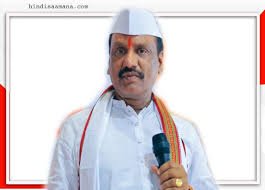


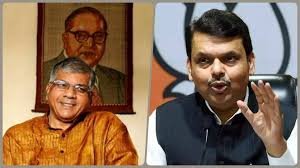
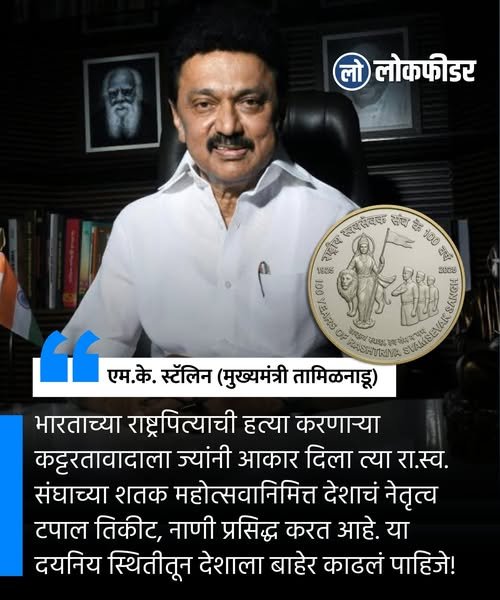
.jpg)

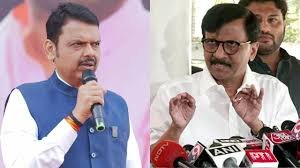

.png)
